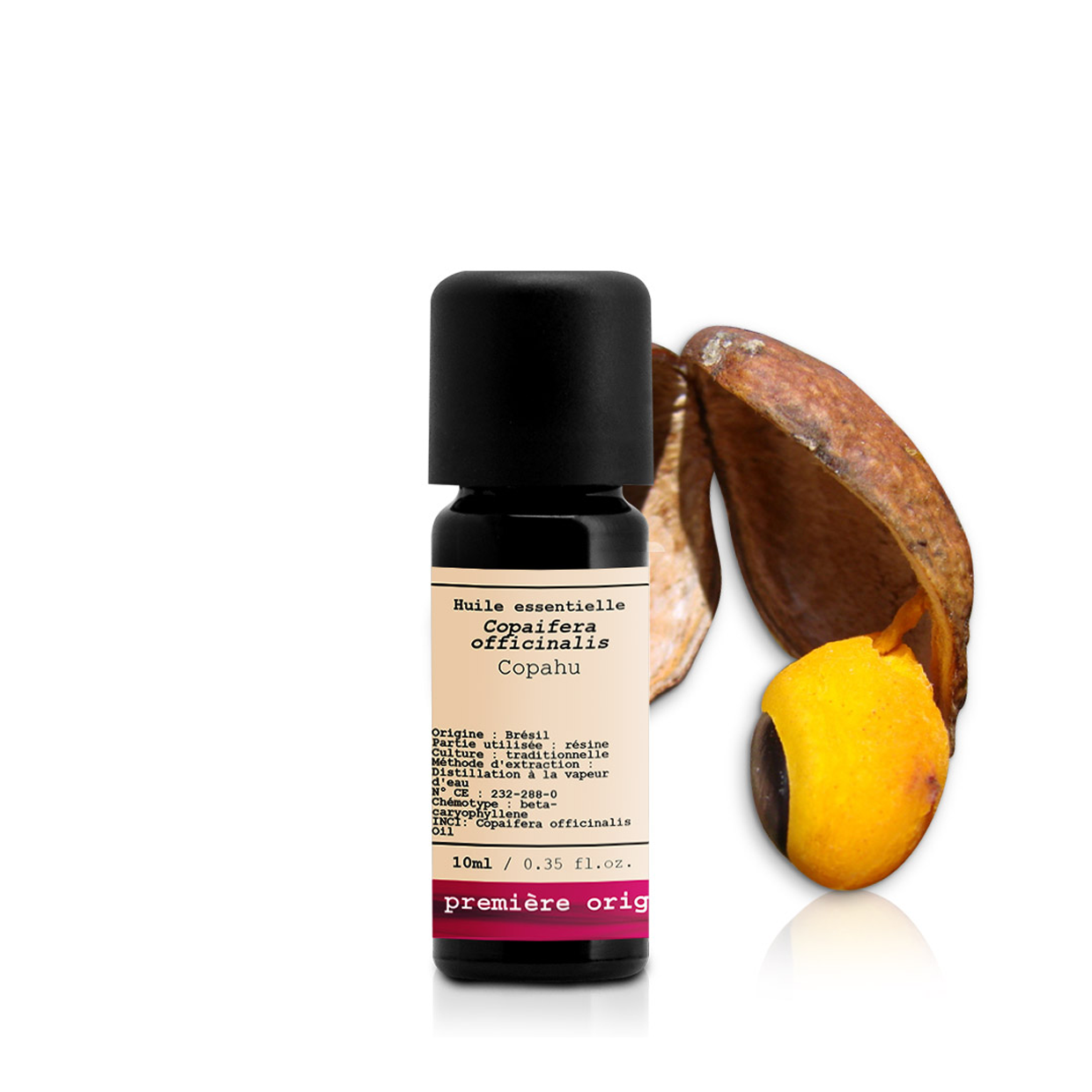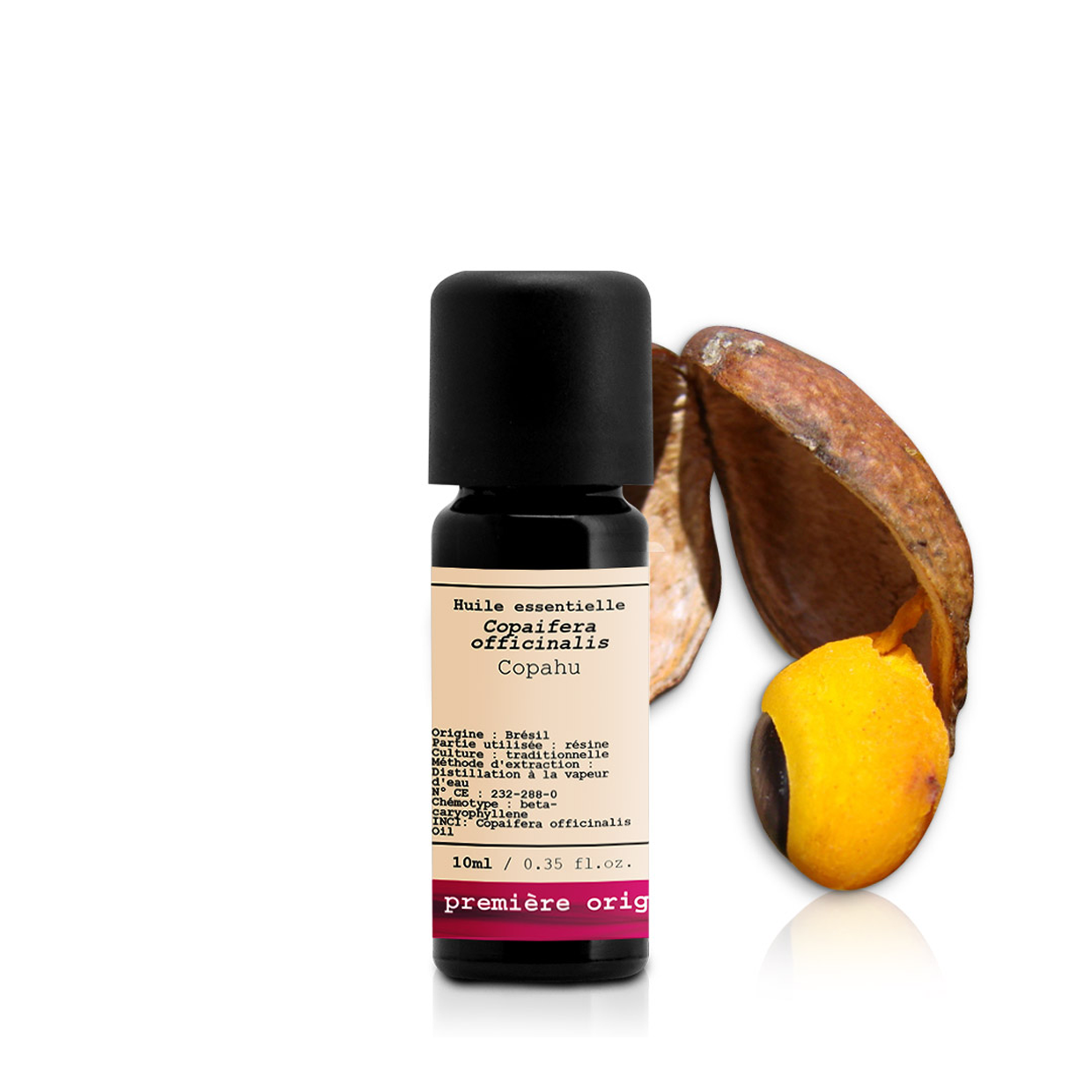laboratoire hévéa
Copaiba _ Essential Oil
Copaiba _ Essential Oil
Não foi possível carregar a disponibilidade de recolha
This product is only shipped to the following countries:
Germany, Austria, Belgium, Bulgaria, Cyprus, Croatia, Denmark, Slovakia, Slovenia, Spain, Estonia, Finland, France, Greece, Netherlands, Hungary, Ireland, Italy, Latvia, Lithuania, Luxembourg, Malta, Poland, Portugal, Czech Republic , Romania, Sweden.
Please do not send orders for this product outside of these countries as they will not be shipped.
Copaiba - Copaifera reticulata
Chemotype: beta-caryophyllene
Cultivation: traditional
Used part: resin
Origin: Brazil
Extraction method: Steam distillation
Principal ingredients: Beta-caryophyllene, Alpha-humulene, Germacrene-D, Alpha-Copahene, Alpha-bergamotene
INCI : Copaifera Reticulata Balsam Oil
Scent: Aromatic and balsamic odor.
Contents: 10ml - Glass bottle anti-UV with dosing dropper
Indications: Essential oil of high purity, botanically and biochemically defined. Analysis bulletin, and precautions for use inside the box.
Copaiba is recommended following shock (contusions, elongations), minor sprains, or spinal osteoarthritis and limbs. It is a powerful anti-inflammatory. It fights effectively against joint pain and is a general tonic, energizing and stimulating. Also used on the skin, Copahu has been shown to be active in fungal infections, wounds, dermatoses, as well as corns and calluses.
Instructions of use:
- Main uses of Essential Oils: medical treatment (oral, transcutaneous, cutaneous, pulmonary application), therapeutic massage, cosmetic skin and hair care, balneotherapy, perfumes and cosmetics and gastronomy.
- Essential Oils are highly concentrated vegetable extracts. For all methods of adsorption and in particular oral application, use the appropriate excipients.
- Essential Oils are not water-soluble: do not use water as an excipient, use vegetable oils, a cleansing base (shampoo, shower gel), alcohol or a neutral cream base.
- For oral application: dilute Essential Oil in a vegetable oil, honey or sugar (sugar cane syrup).
Warnings:
- Keep out of the reach of children.
- Never pour pure Essential Oils into water, if used in this way they may cause skin irritation.
- Not suitable for children under the age of 3.
- Some Essential Oils may be dangerous for pregnant and breast-feeding women. Avoid self-medication. Seek advice from your aromatherapy doctor.
- Special attention should always be given to patients with a known allergy; a certain number of potentially allergenic molecules may be present in Essential Oils (cinnemaldehyde, citral, citronella oil, eugenol, geraniol, d-limonene, linalol, coumarin etc.).
- Some Essential Oils irritate the skin and mucous membranes; bear in mind the aggressiveness of phenols and aldehydes to the skin and mucous membranes. Select suitable excipients and appropriate concentrations.
- A skin test is recommended prior to use for checking tolerance of Essential Oils (apply to inside of the wrist).
- If oils are splashed into the eyes, wipe the affected eye immediately with a cotton wool pad soaked in pure vegetable oil or place a few drops of pure vegetable oil into the eye.
- Never apply pure Essential Oils to the anogenital region, aural or nasal passages or administer intravenously.
- In the event of accidental swallowing ingest vegetable oil (1 to 3 tablespoons), do not induce vomiting. Never drink water.
- All citrus essential oils are photosensitive. Do not expose yourself to the sun within 12 hours of application or ingestion.
- Peppermint essential oil should never be applied over an extensive cutaneous area (freezing reaction).
- Medical supervision is essential for all pathologies with a lengthy duration and for the elderly since it is advisable to check the absence of an interaction between Essential Oils and on-going treatments.
In the event of the accidental ingestion of a large quantity of Essential Oil contact your nearest anti-poisons centre.
Storage: Keep out of light and away from heat.
Share


